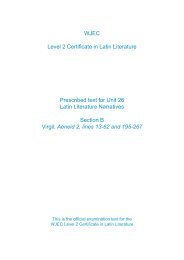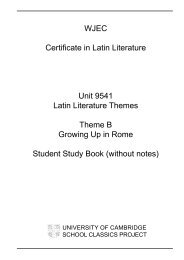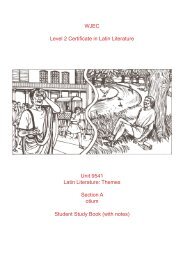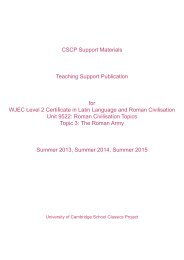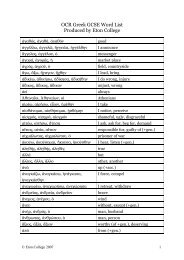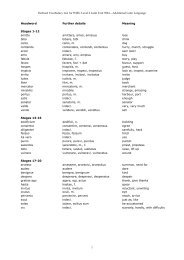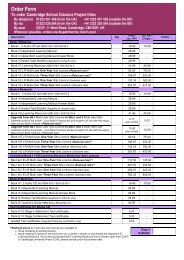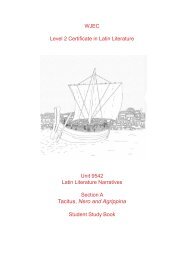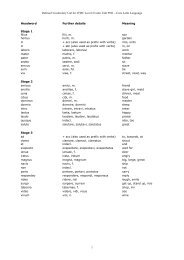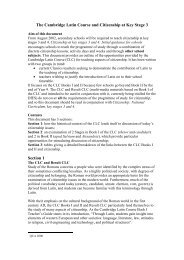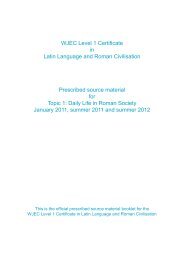2. Student Study Book - Cambridge School Classics Project
2. Student Study Book - Cambridge School Classics Project
2. Student Study Book - Cambridge School Classics Project
Create successful ePaper yourself
Turn your PDF publications into a flip-book with our unique Google optimized e-Paper software.
Check1<strong>2.</strong> Translate these examples:(i) ridebis cum fabulam meam audiveris.(ii) gaudebis cum hoc cognoveris.(iii) gaudebis cum cognoveris filium tuum diligentissime laborare.13. What will Hispulla be glad to learn about Calpurnia (lines 4-5)? (Look for a pronoun referring to Calpurnia, andthen for an infinitive stating what she is doing.)14. Find the adjective describing Calpurnia, and note that it is used with the ablative case. Who are the three peoplewhom Calpurnia is worthy of?15. Translate lines 1-5.16. Construct the family tree of the following people (* = dead when Pliny wrote; ? = name unknown; nounsindicating relationships show relationship to Calpurnia):It may be helpful to keep the family tree for future reference.Fabatus avus (short for Calpurnius Fabatus)? avia (grandmother)*Calpurnius pater*? mater*Hispulla amita (amita indicates a father’s sister, not a mother’s)CalpurniaPlinius maritusThe words filiam fratris diligis (lines 1-2) and dignam te (worthy of you, lines 4-5) suggest that Hispulla hasbeen closely involved with the bringing up of Calpurnia. Does the family tree suggest a possible reason for this?(Hint: look at the *asterisks.)17. Is there any indication in lines 3-5 that Calpurnia and Pliny have not been married long? (Hint: look at tense ofevadere.)Answers1<strong>2.</strong> (i) You will laugh when you hear my story.(audiveris is an unusual tense, known as the future perfect. The laughing and the hearing both take placein the future, but not at the same time; the hearing happens before the laughing. For more information seethe <strong>Cambridge</strong> Latin Grammar, page 29, paragraph 8.)(ii) You will be glad when you learn this.(iii) You will be glad when you learn (or, glad to learn) that your son is working very hard.(cognoveris leads on to an indirect statement, so filium is accusative and laborare infinitive.)78 WJEC Level 2 Latin Literature Unit 9541 Love and Marriage



